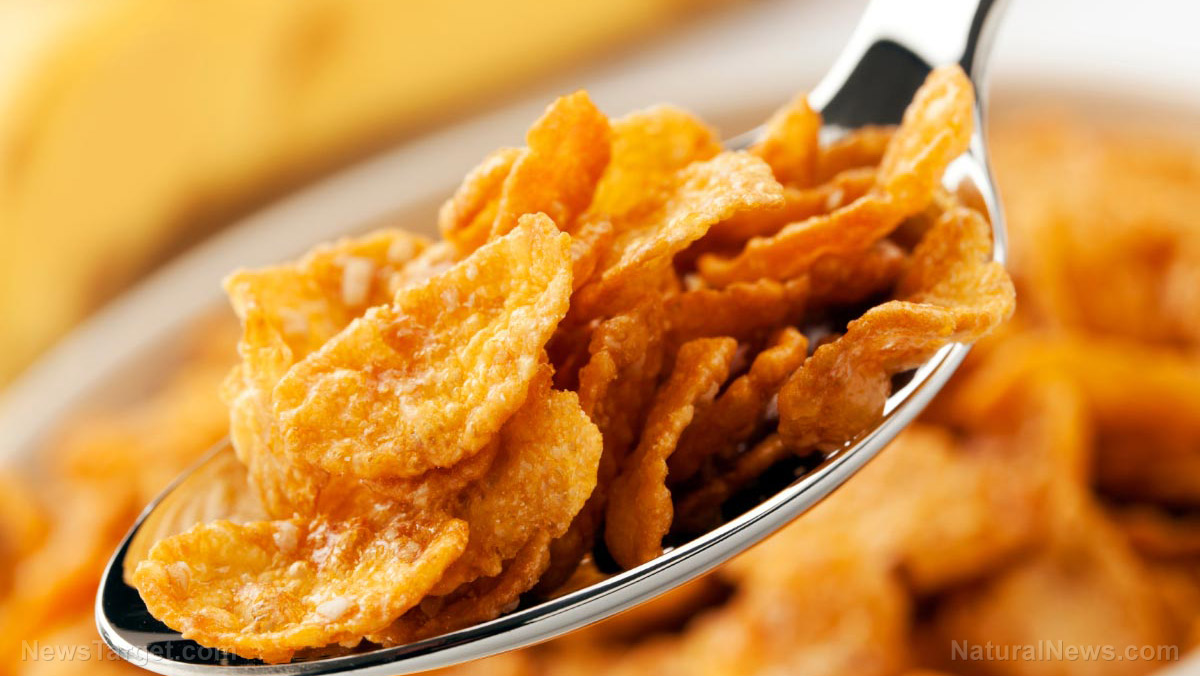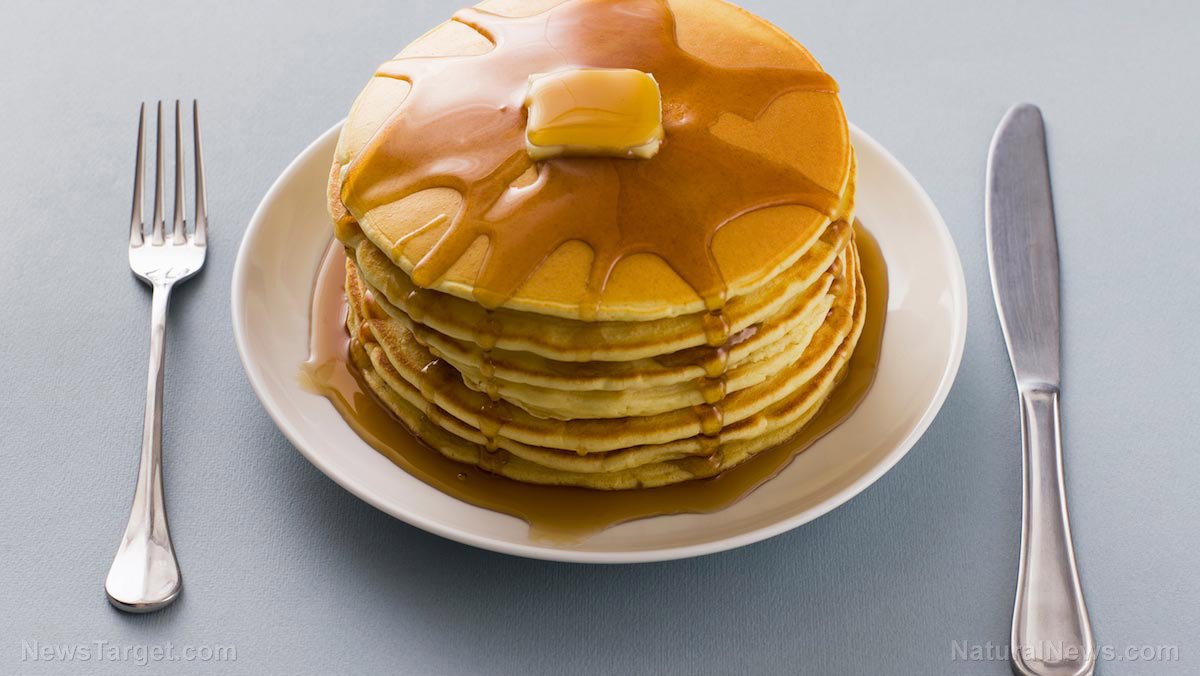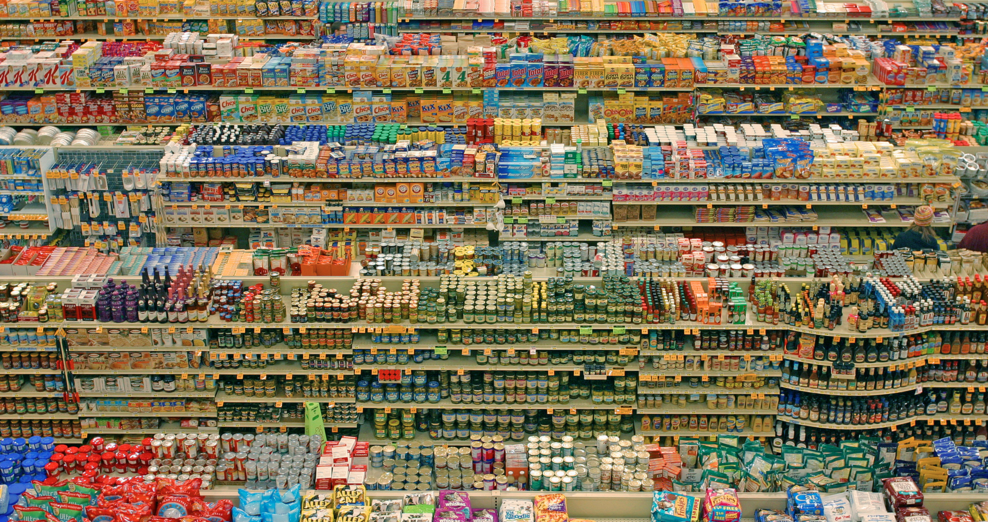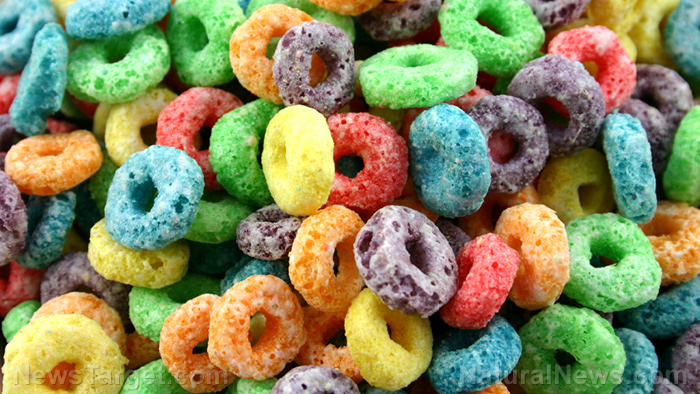Top 10 toxic ingredients in children’s cereal
10/07/2015 / By John Allen
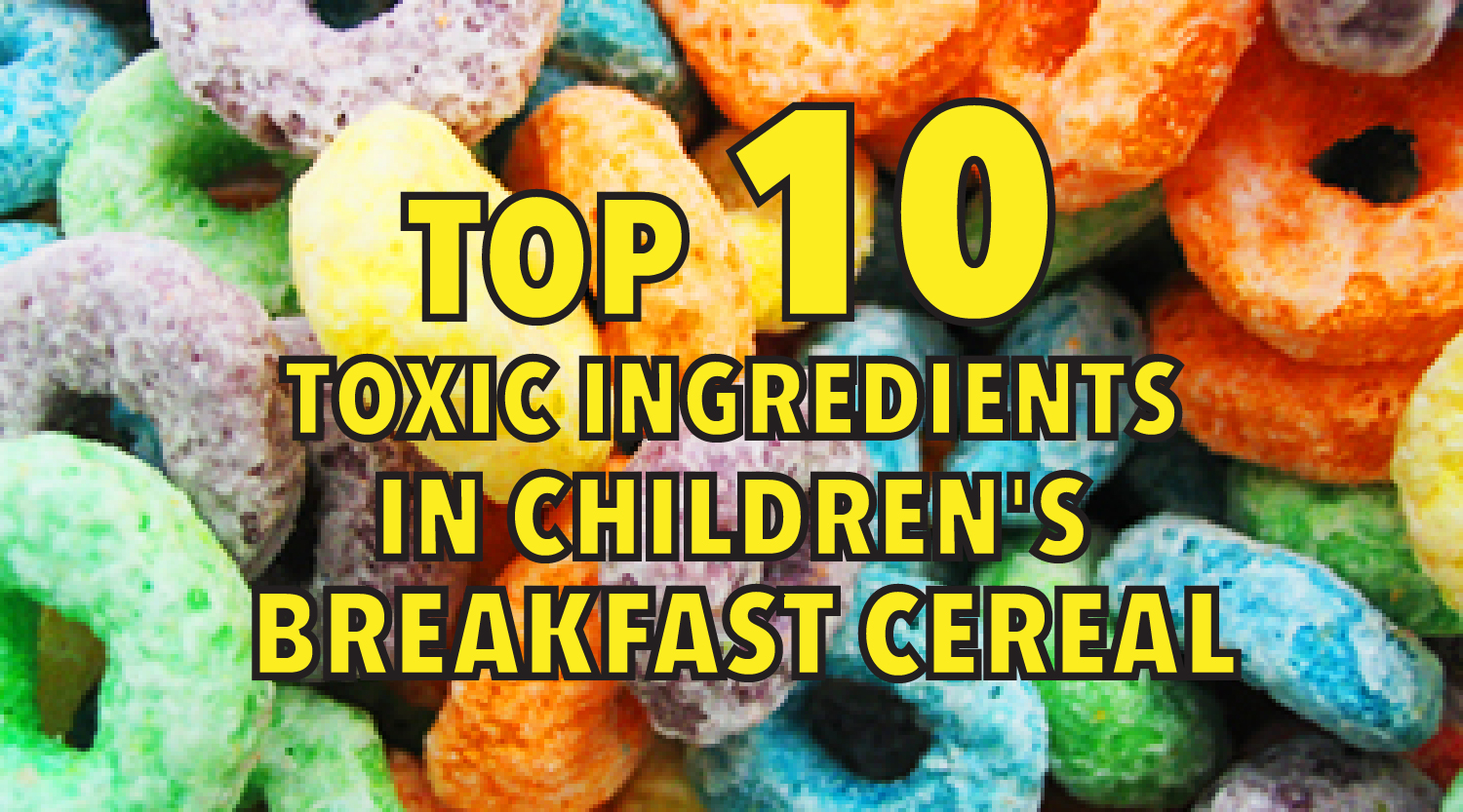
Selling harmful food to kids is a huge business. Using the most recent data, the Federal Trade Commission reports that food and beverage companies spend some $1.8 billion annually to make kids want to consume their products. Most of that advertising is spent on fast food, carbonated drinks and, of course, breakfast cereal. The breakfast cereal companies alone spend around $264 million per year pushing their products, which typically contain 85% more sugar, 65% less fiber and 60% more sodium than cereals made for adults, according to the Cereal FACTS 2012 Report. And the more harmful the cereal, the more money they spend advertising it.(1, 2)
With that in mind, here’s handy list of 10 breakfast cereal ingredients that are making children unhealthy.
Sugar
As anyone who has ever eaten a bowl of children’s breakfast cereal knows, sugar is the most obvious culprit. A child who eats one bowl of cereal each day for one year consumes a total of 10 pounds of sugar, according to a report issued by the Environmental Working Group, based on the analysis of over 180 children’s breakfast cereals. In addition to causing tooth decay, refined sugar has no nutritional value, and when consumed in excess, it can lead to obesity and diabetes.(3)
High-fructose corn syrup
High fructose-corn syrup (HFCS) is the most common sweetener found in children’s breakfast cereals. Too much of it can lead to insulin resistance, obesity, type 2 diabetes and high blood pressure. It has also been found to contain the toxic heavy metal mercury. And other toxic chemicals are used in the HFCS manufacturing process, such as glutaraldehyde, which is a common ingredient in embalming fluid. In response to the increasingly negative image of HFCS, the Corn Refiners Association has come up with a variation called HFCS-90, a technicality which allows labeling to claim that the product contains no HFCS.(4, 5, 6, 7)
GMOs
The sugar and corn syrup in most conventional children’s cereals are made from GMO-based products. Little is known about the long-term effects of consuming GMOs, but existing evidence indicates that it’s far from safe. The GMO industry has engaged in massive propaganda in an effort to put a positive spin on this issue, which should be reason enough to exercise extreme skepticism.(8)
Hydrogenated oils
Many breakfast cereals contain partially hydrogenated vegetable oils, which contain trans fat, a major factor in coronary heart disease – the leading cause of death for both men and women.(9)
BHA and BHT
These common preservatives are considered safe in moderation by the FDA, but they’re considered a possible cause of cancer by the National Institutes of Health. In addition, BHT is also a possible trigger for attention-deficit hyperactivity disorder.(10)
Soy lecithin
Many soy foods are processed with a petrochemical called hexane, which is classified by the Centers for Disease Control and Prevention as a neurotoxin and a hazardous air pollutant.(11)
Synthetic vitamins
Every children’s breakfast cereal is “fortified” with large amounts of vitamins, giving parents the impression that it’s actually nutritious. But unlike vitamins found naturally in whole foods, these are synthetic versions which have been processed and stripped of their natural nutritional value, which can pose significant health risks. For example, too much synthetic vitamin A can cause liver damage, skeletal abnormalities, peeling skin and/or hair loss.(12)
Artificial colorings
Children’s breakfast cereals come in every color of the rainbow, thanks to the copious use of dyes. These synthetic chemicals are made from petroleum, antifreeze and ammonia, and are named according to a clinical numbering scheme. Blue #1 causes kidney tumors in mice. Red #2 and Blue #2 cause brain and bladder tumors in rats. Red #3 causes thyroid cancer in animals and is banned in cosmetics, but still allowed in food. Red #40 debilitates the immune system. Green #3 causes bladder and testes tumors. Yellow #5 and #6 cause adrenal tumors in animals.(13)
Metal fragments
Yes, metal fragments. Wheaties, one of the oldest breakfast cereals on the market, has always been popular older kids, as well as adults. But until recently, consumers didn’t know that Wheaties contains so many metal fragments that they can be levitated with a magnet! That’s right, as this video by the Natural News Forensic Food Lab shows, particles from crushed Wheaties flakes are actually magnetic! Lab Director Mike Adams speculates that the bits of metal are added “to enhance the nutritional profile and claim a higher iron content on the label.”(14)
Sodium chloride
The human body needs salt, but too much of it can lead to high blood pressure, heart disease and stroke. And most children’s breakfast cereals are loaded with sodium chloride – the highly refined type of salt found in processed foods. According to Yale University’s Rudd Center for Food Policy and Obesity, breakfast cereals marketed to children contain 60% more sodium than breakfast cereals marketed to adults. A healthy alternative to sodium chloride is unprocessed “raw” salt, such as Himalayan pink crystal salt, which contains 84 essential minerals and trace elements.(15)
Eyeballs
Although not an actual ingredient, brand mascots are a crucial part of every breakfast cereal – and they’ve got their eyes on your kid! The merchandising trick of putting children’s breakfast cereals on the bottom two shelves – so children can easily see them – is well known. However, researchers at Cornell University discovered that mascots on a majority of cereal boxes are intentionally designed to make incidental eye contact with children, gazing down at them at an average angle of 9.67 degrees. Furthermore, they found that this eye contact creates subconscious feelings of trust and connection with the brand. In an experiment using Trix cereal, for example, kids liked the cereal better when the Trix rabbit made eye contact.(16)
Sources:
(2) CerealFacts.org
(3) EWG.org
(4) Health.ClevelandClinic.org
(5) NaturalNews.com
(6) NaturalNews.com
(7) NaturalNews.com
(8) Druker, Steven M. Altered Genes, Twisted Truth: How the Venture to Genetically Engineer Our Food Has Subverted Science, Corrupted Government, and Systematically Deceived the Public.
(9) MayoClinic.org
(10) Mamavation.com
(11) Cornucopia.org
(12) NaturalNews.com
(13) NaturalNews.com
(14) NaturalNews.com
(15) HSPH.Harvard.edu
(16) FoodPsychology.Cornell.edu
Submit a correction >>
Tagged Under:
breakfast, children's cereal, diabetes, food additives, food marketing, GMOs, high-fructose corn syrup, sugar, toxic ingredients
This article may contain statements that reflect the opinion of the author
RECENT NEWS & ARTICLES
COPYRIGHT © 2017 TOP 10 GROCERY SECRETS



